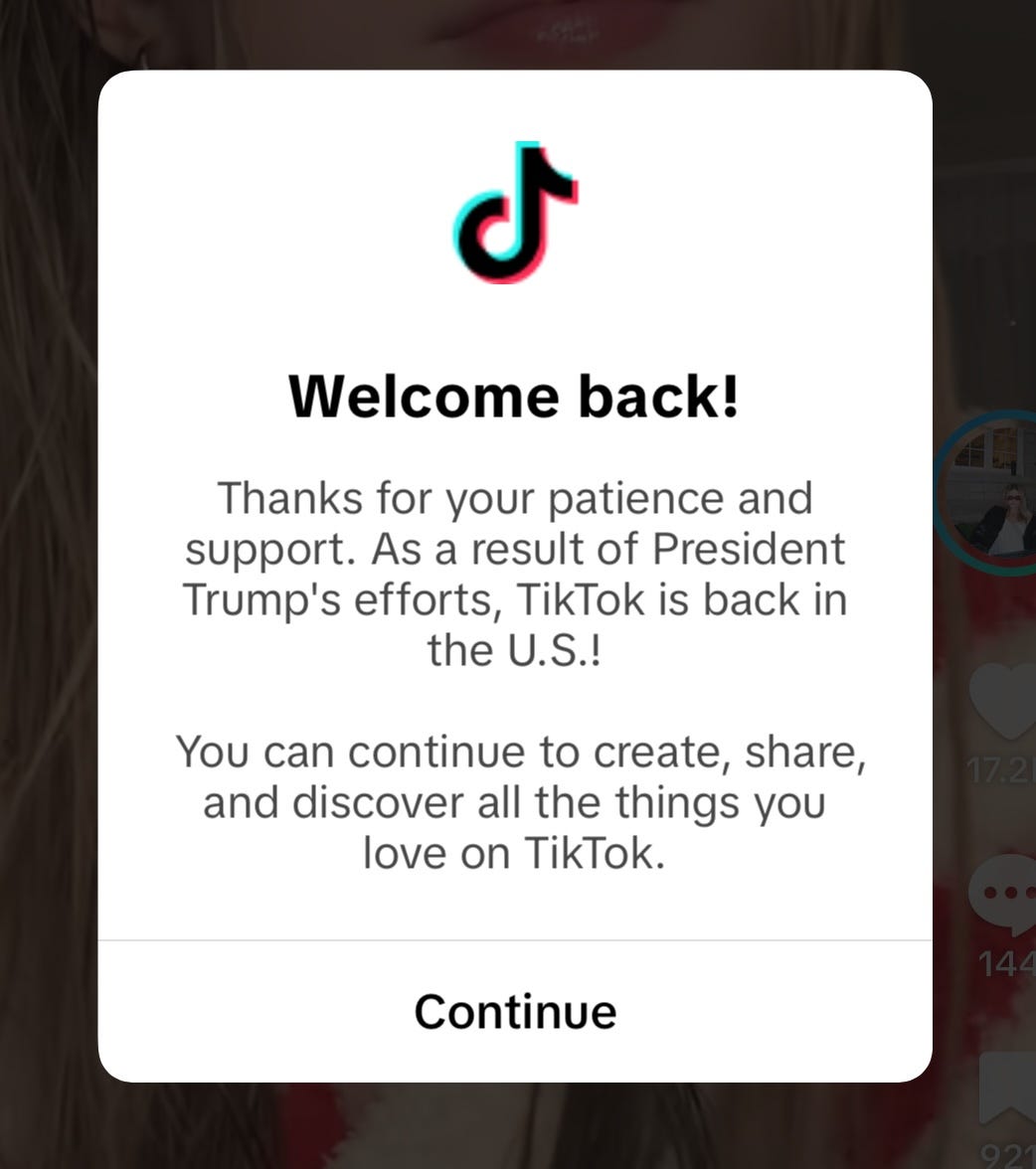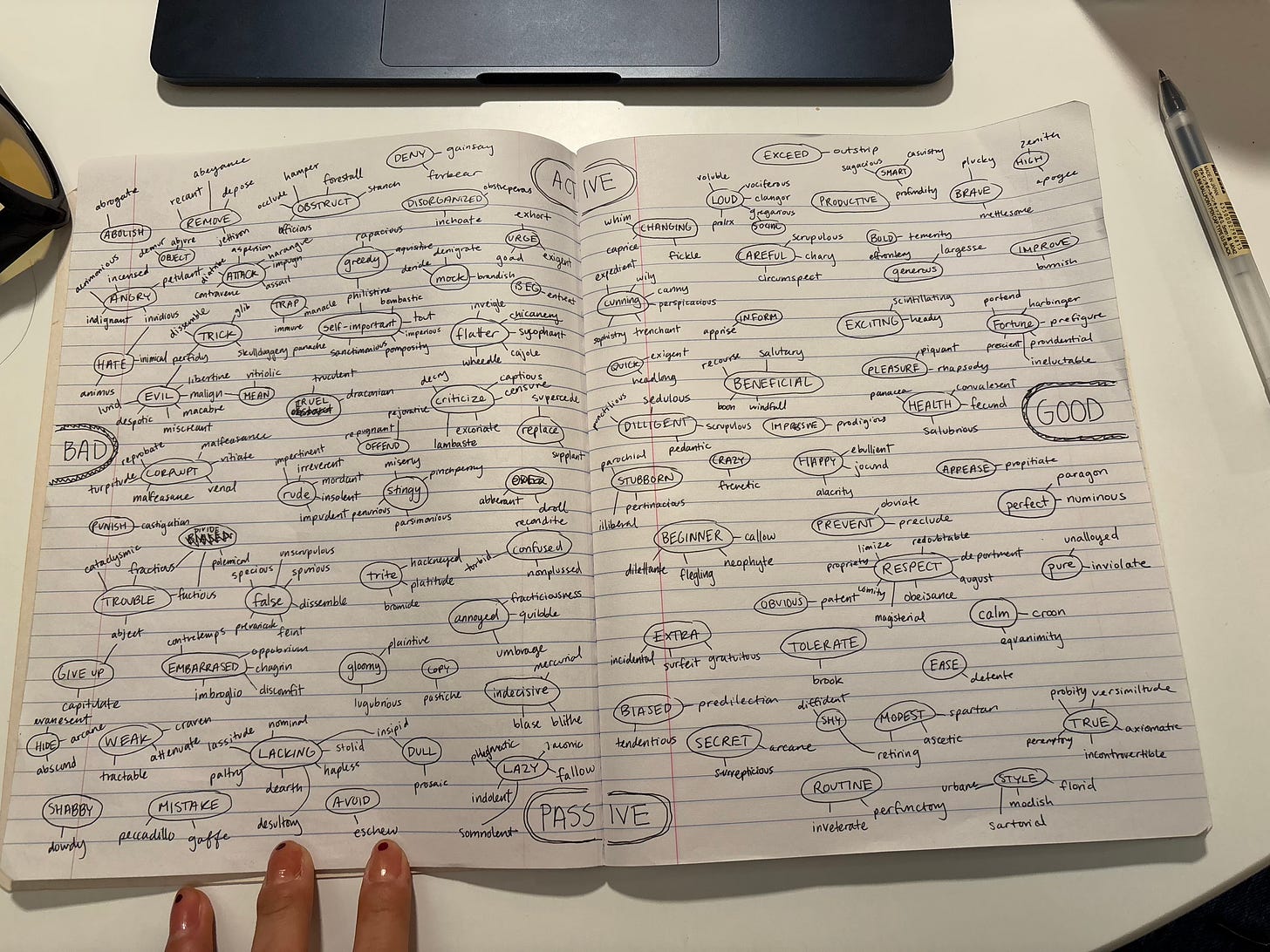Admittedly, I did not have TikTok on my phone for most of 2024. But on Saturday night, I got into bed at 9pm and scrolled through videos of influencers saying goodbye to the platform that changed their lives. Their expressions of gratitude were so dramatic and teary-eyed they almost seemed truthful. Creators also posted compilations of clips from the last five years, went live for the final time, and admitted to career-altering lies (the fitness girls don’t actually do their workouts, the big pranks were carefully orchestrated). It was all quite grand.
Yesterday it was snowing and my friends and I sat on the couch in our pajamas watching Gossip Girl and picking the marshmallows out of the Lucky Charms box. Midway through an episode, someone exclaimed, “It’s back!” Of course, I thought, without any relief or surprise.
It’s a weird day, and a weird message to see pop up on my phone screen. I don’t think I’ll be using TikTok much this year. An argument in favor of the app is that it quickly and efficiently teaches you about any topic—I’ve saved countless cooking, fashion, psychology, and job interview advice videos—and makes information accessible. But real learning isn’t cheap, passive, or shallow.
If you have today off from work or school and your thumbs are aching, may I suggest…stay with me…expanding your vocabulary. There are so many benefits: you’ll get smarter, communicate more clearly, and improve your memory. It isn’t hard, but it takes sustained, active effort.
I was studying for a standardized test over break and looked up a list of 1000 common vocabulary words. I went through all of them and marked the ones I didn’t know. To know a word I had to be able to come up with a short definition (or at least a couple synonyms). There were many words that looked familiar (I had seen it in print a million times, or even used it in an essay) or triggered vague semantic associations, but I couldn’t automatically and clearly define them.
Then I made Quizlet flashcards. There were around 300 total.

I practiced these sets mostly at night, when my brain was about to turn off but I still had a little fuel left. In high school I believed that if I “slept on” information, I’d wake up with it memorized. I also multitasked: on my flight to Mexico City, I watched movies on the seat-back screen and did flashcards on my phone at the same time. I flipped through the deck while sipping my morning matcha.
When I grew tired of Quizlet, I drew word maps. I wanted to visually group similar words and place them on a grid according to the axes BAD → GOOD and ACTIVE → PASSIVE. Trickery, for example, was BAD and ACTIVE. Its words included perfidy, glib, skullduggery, chicanery, and dissemble. The related Flatter cloud was farther right and connected inveigle, wheedle, cajole, and sycophant. The maps expedited the memorization process A LOT.
After my three week vocabulary bootcamp, I started to see the 300 words everywhere—in online articles, lecture slides, books, text messages, movie and TV show dialogue—which made me realize how often I was glazing over words without fully understanding what they were achieving. How many times did I do a reading for class, skim across the surfaces of the sentences, and miss the point? How often do I give up on finding exact language and default to lazy catch-alls?
I still don’t use my new words all the time, and it sometimes takes teeth-clenching intention to insert them into emails or texts or dinner table conversations. But the rigor of learning them was valuable, and I get excited when I see them in the wild. Words are the only instruments that can help us chip away at the amorphous sensations of being alive.
See you next week!





love the idea of the word map!! definitely been wanting to improve my diction lately as well, thank you for writing this 🫶🏼 being well-spoken is soooo in for 2025
wait this is so good i have words i always read and assume the meaning off based on the context but always discover it means the opposite of what i thought. although ive started collecting new words i’ve learnt (in korean as well as english) i want to start doing this actively